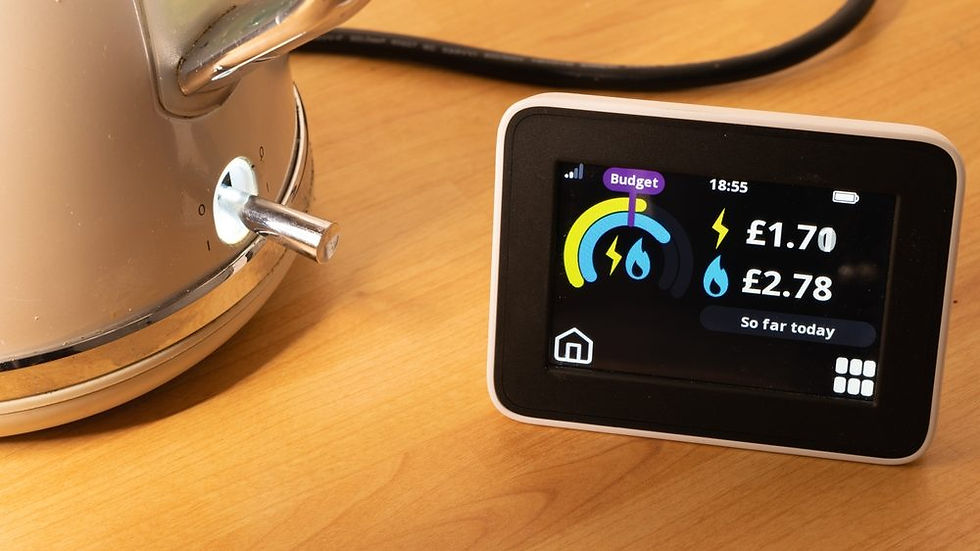Smart Meter Insights and Utility Saving Tips with Martyn Linton
- Martyn Linton
- Sep 1
- 3 min read
Updated: 2 days ago
In this blog, I am going to talk about smart meters, as they are often misunderstood. Smart meters represent a significant development in utility billing, and they are here to stay.
Understanding Your Energy Bill
To begin, we need to understand how your energy bill is calculated. Utility company bills are based on either estimated usage or exact usage. Knowing this is the first step toward managing your energy costs effectively.
Estimated bills are based on what your utility provider predicts you will use. Unfortunately, these estimates can be very inaccurate. They may either underestimate or overestimate your actual usage. This can leave you owing money or, conversely, overpaying. Accurate usage bills are fairer and encourage better consumption habits.

The Benefits of Smart Meters
Unlike traditional meters, which require manual readings, smart meters use wireless technology to transmit data. This innovation eliminates the need for in-person inspections and provides both consumers and utilities with instant access to usage data. The hassle of taking and submitting physical readings is a thing of the past.
Smart meters do more than just measure consumption; they also track when and how energy is used. This capability enables you to better understand your energy patterns. It also allows advisors like me to help you improve your efficiency and ensure you are on the best deal for your needs.
Many people I speak with mistakenly refer to the image above as a smart meter. In reality, this device is called the In Home Display (IHD), and it serves as the visual element of your meter data.
The smart meter itself is located under the stairs or in another carefully selected safe space. The smart component is a small device attached to the meter that transmits data to the utility company.
The IHD allows you to physically see the data, making it easier to track your energy usage.
If You Don’t Have a Smart Meter
I highly recommend that you get one. You won’t have to pay for the installation of a smart meter. Simply contact your energy supplier, and they will arrange for it to be installed at no cost to you.
It’s also worth checking your current energy bill to ensure that it is accurate and that you are on the best deal available. Both of these factors can significantly impact your finances. This is something I can assist you with if you reach out to me.
Understanding Energy Efficiency
Energy efficiency is crucial for reducing your bills and minimizing your carbon footprint. By using smart meters, you can identify areas where you can save energy. For example, you might discover that you use more energy during peak hours. This knowledge allows you to adjust your habits accordingly.
Tips for Improving Energy Efficiency
Monitor Your Usage: Use your IHD to keep track of your energy consumption in real-time. This will help you identify spikes in usage and adjust your habits.
Switch Off Unused Devices: Many devices consume energy even when they are turned off. Unplugging these devices can lead to significant savings.
Consider Energy-Efficient Appliances: If you’re in the market for new appliances, look for energy-efficient models. They may have a higher upfront cost but will save you money in the long run.
Insulate Your Home: Proper insulation can reduce the amount of energy needed to heat or cool your home. This is an investment that pays off over time.
Take Advantage of Off-Peak Rates: If your utility provider offers lower rates during off-peak hours, try to run major appliances during those times.
Conclusion
Smart meters are an essential tool for modern energy management. They provide valuable insights into your energy usage, helping you make informed decisions. If you don’t have a smart meter yet, I encourage you to get one. It’s a simple step that can lead to significant savings.
If you have questions about your energy bill or need assistance in finding the best deal, don’t hesitate to reach out. I’m here to help you navigate the complexities of utility services and improve your energy efficiency.
Martyn Linton
Comments